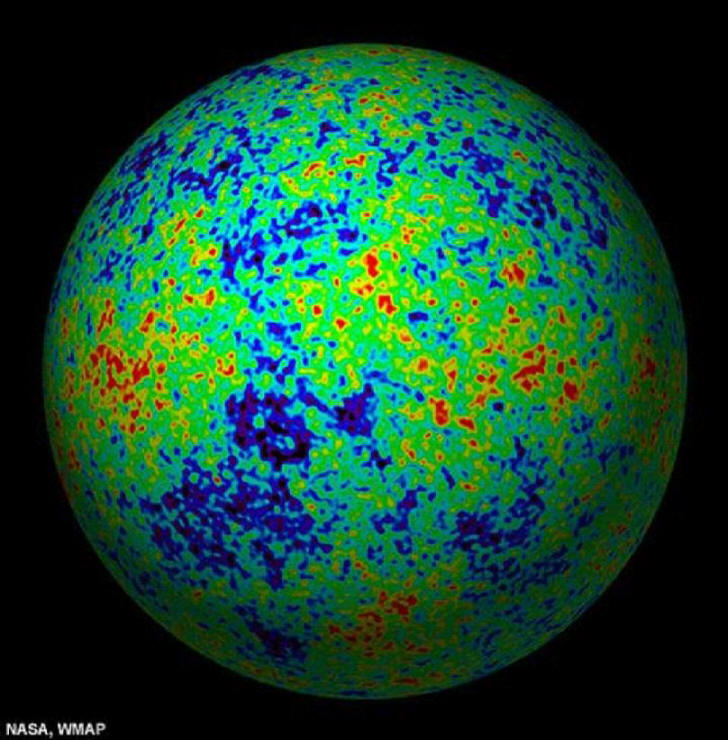Multiverse Madness

There is little confidence in the idea of the multiverse, which says that our Universe is only one of infinitely many, at least in the most bizarre corners of theoretical physics. But there are convincing reasons to be skeptical of this idea, and I am going to tell you all about it.
But before we begin to do this, let's clearly define what we are talking about, since the multiverse also happens a lot. The most commonly discussed ideas are:
')
a) a multi-world interpretation of quantum mechanics ,
b) infinite inflation ,
c) landscape string theory .
The multi-world interpretation is, strangely enough, an interpretation. Today, it makes no predictions that differ from other interpretations of quantum mechanics. Therefore, you yourself can choose whether to believe in it or not. And that's all I can say about this.
Infinite inflation is an extrapolation of inflation, which, in turn, is an extrapolation of the lambda-CDM model, which, in turn, is an extrapolation of the Universe observed today back in time. Infinite inflation, like inflation, works on the basis of a new field (the " inflation field ") which no one has ever seen, since we are told that it has long disappeared. Infinite inflation is the story of the quantum fluctuations of the vanished field and how these fluctuations affected gravity, which, in fact, no one knows for sure.
There is little evidence of inflation, and there is no evidence of infinite inflation at all. But the models of both of them there is a whole car, since the available data does not particularly limit them. Accordingly, theorists come off in full. And the more work they write on this topic, the more believable it seems.
There is also a string theory landscape, a graveyard of disappointments. This is how you end up if you refuse to accept the fact that string theory does not predict which particles we are observing.
The string theory specialists initially hoped that their theory would explain everything. When it became clear that this did not work, some theorists declared that if they did not succeed, then this is impossible, and, therefore, everything that the string theory predicts should exist - this is the multiverse for you. But with any other theory one could do the same, if you do not have enough observations to determine a specific model. Therefore, the landscape does not serve as a prediction of string theory, but as a consequence of the theorist’s insistence that their theory is the theory of everything .
Why does anyone take the multiverse theory seriously? Supporters of the multiverse usually offer the following four arguments in its favor:
1. It is refuted!

Our bubble universe
In certain cases, some versions of the multiverse give observable predictions. The most frequently used example is that our Universe could collide with another universe in the past, which could leave a trace in relic radiation. There is no evidence for this, but this, of course, does not exclude the multiverse. It just means that we hardly live in this version of the multiverse.
But just because the theory makes refutable predictions, it does not follow that it is scientific. A scientific theory should have a chance to be correct. If there is an infinite number of ways to correct the theory so that some predictions cease to be fulfilled, this is not a scientific theory. Such flexibility already exists in the case of inflation, and extrapolating this to infinite inflation makes it all the worse. If you splash the string landscape theory or the multiworld interpretation from above, it doesn't get any better.
Therefore, do not fall for this argument, it is incorrect.
2. Well, it is not refuted, but it sounds logical!
The second step is the statement that the multiverse is a logical consequence of well-founded theories. But science is not mathematics. And even if you believe mathematics, the conclusions are only as good as the assumptions with which they started, and neither string theory nor inflation theory is firmly grounded. If you think otherwise, you have read the wrong blogs.
I would agree that inflation is a good and effective model, but the exact same model would be an approximation of the human body with a bag of water, and let's see how far you go on such an approximation.
But the problem with the statement that a single logic is enough to determine the reality of something, lies deeper than personal attachments to beautiful ideas. A much bigger problem lies in the fact that scientists are confused about the purpose of science. This is well seen in the phrase in the recent work of Sean Carroll. In defense of the idea of the multiverse, he writes: "Science understands what truth is." But it is not. Science deals with the description of our observations. Science deals with what's useful. And with the fact that there is truth, math understands.
In fact, the multiverse extrapolates the well-known physics by at least 13 orders of magnitude (in energy) beyond what we tested, and then adds unverified assumptions, such as strings and inflation. This is not a science, but a mathematical fantasy.
Therefore, do not buy into it. Just from the fact that something can be calculated, it does not follow that this is a description of nature.
3. Ok, so it is neither refuted nor logical, but science continues to work.
The essence of this argument, also presented in the recent work of Sean Carroll, is that we can evaluate the multiverse hypothesis in the same way as any other hypothesis using Bayesian inference .
Bayesian inference is a way of assessing the likelihood in which you update the information you have so that as a result you arrive at the most likely hypothesis. Suppose you want to know how many people on the planet have curly hair. To begin with, you will assume that this number is probably less than the total population. You can then assign an equal probability to all possible percentages in order to assess your lack of knowledge on the subject. This is called prior probability .
Then you start to remember people you know and assign a lower probability to very large and very small percentages. After that, you can look at photos of people from different countries, count the share of curly, multiply by the population, update your estimates. As a result, you get a fairly accurate assessment.
If you replace the words with equations, you get how Bayesian output works.
The same can be done with a cosmological constant. Make some a priori guesses, take into account the limitations of the observations, and obtain some estimate of the likely value. It was by this calculation that Steven Weinberg became famous, and he got a not too bad result. Awesome
But only from the fact that you can make a Bayesian conclusion, it does not follow that for every percent of curly people there must exist its own planet Earth. These additional lands are not needed, because in the Bayesian derivation probability describes the state of your knowledge, and not the distribution of real sets. Likewise, the multiverse is not needed in order to update the probability of the parameters obtained taking into account the observations.
Therefore, if science continues to work, then it does not need a multiverse.
4. So what, we will still do it.
The fourth, and usually the last argument - let's just assume that the multiverse exists, and maybe learn something and generate some new ideas. This is the good old gospel of unpredictable ideas.
In practice, this means that supporters of the multiverse insist on interpreting the probabilities of the parameters through the presence of multiple universes, that is, the multiverse. And then they have the problem of where to take the probability distribution - an unpleasant difficulty, because this set is infinitely large. This is called the measurement problem of the multiverse.
To solve the problem, they have to construct a probability distribution, which implies the need to invent a landscape metatheory. This, of course, is another level in infinite regression , and it does not help to find a theory of everything. Worse yet, since there are infinitely many such distributions, it remains to be hoped that they will find one that does not need more assumptions than the Standard Model already has, since otherwise the multiverse can be simply discarded using the Occam's razor.
But let's say the best outcome is that they will find the measurement of the multiverse, according to which the parameters of the Standard Model will be likely, and this measurement will require fewer assumptions than the simple postulation of the values of the parameters of the Standard Model. It will be very cool and I will be impressed accordingly. But even in this case, we will not need the multiverse! We will only need an equation to calculate the estimated maximum of the probability distribution. And then Occam's razor will have to remove the multiuniverse again.
In that case, of course, you can insist that the multiverse will be one of the possible interpretations, so you are allowed to believe in it. And I do not mind. Believe what you want, but do not confuse it with science.
Source: https://habr.com/ru/post/371411/
All Articles